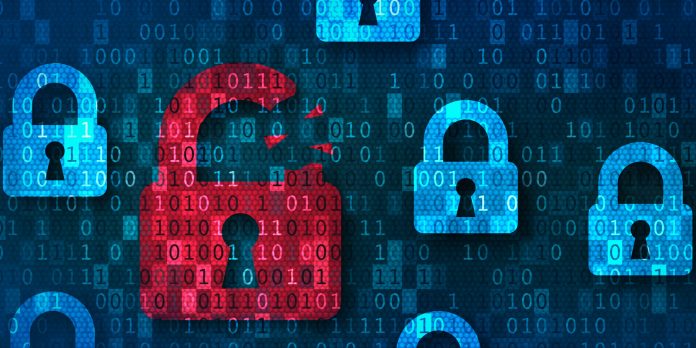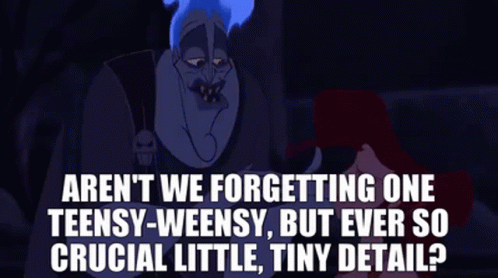
Discriminatory practices against the firearms and self defense community are nothing new. They are not so subtly covered in the nebulous policies of social media companies and their sharing software user agreements. You cannot post this, or post that, because it goes against our “Community Standards” in some manner.
Now, I am not saying a platform shouldn’t have standards. They should, they must, they should have the freedom and empowerment within their sphere to remove a beheading video titled, “What All Men Deserve,” or a post depicting a sexual assault saying “Women Get What They Earn,” or a solicitation for child pornography, or a solicitation to traffic that child.
The reality of social media has a dark and venomous under-dungeon that most users with a run of the mill “flagged post” don’t see. Most of us don’t see it because moderators catch the truly “WTF!?!” stuff early on and it generally circulates in small ‘interested’ circles. That vile venom, plus the clear tech political lean, plus zealous algorithmic automation, means that your meme gets tagged, flagged, and removed even if probably didn’t violate a ‘community standard,’ because they would rather not take the chance.
Because the 2A community is constantly speaking about the topic of violence (that’s the point) the fact that we run afoul of posted standards (sometimes genuinely, sometimes not) is par for the course. This is the nebulous realm of mass communication. That is social media.
But what about something foundational? Like Commerce?
Caleb posted this morning about the PLCAA, The Protection of Lawful Commerce in Arms Act. This shields companies like Aero Precision, SIG Sauer, or anyone else who makes or trades in arms, ammunition, and related goods from being sued into oblivion just because one of the products they made was used criminally.
It does not protect any of them from willful negligence, it doesn’t dissolve their liability for making an unsafe or faulty product, it doesn’t protect them if they made a social media post saying “Its time to take it back” and that was put over a field of people charging the Capitol Building or the White House with rifles in their hands.
But it should protect their ability to do business lawfully and make changes to the law suffer strict and careful scrutiny.
This is a topic I’ve been meaning to get to for nearly two weeks, ever since Shannon Watts, head of the demanding mothers who demand things demandingly, posted on Business Insider that Credit Card companies and other financial institutions should interfere and ‘do their part’ to combat gun violence.
Credit card companies need to help stop the spread of untraceable ‘ghost guns’ – Business Insider
No Shannon, they shouldn’t. In fact they should be actively prohibited from taking action, and I believe an amendment to the PLCAA would be the best method for assuring compliance. Anyone offering a stand-in for currency or a method to move currency around should be prohibited from denying payment or collection services to someone engaged in lawful sales regarding firearms, ammunition, or related items.
Firearms, and arms in general, are a lawfully protected at a level that no other produced and manufactured category of product is, in the Bill of Rights. Only arms are specifically enumerated, everything else that could be a product or service is inferred. In practice, we know that there is no rule prohibiting blocking the sales of or preventing a host from not taking an advertisement or sales page. We’ve seen this everywhere from the Superbowl rejecting a Daniel Defense ad to Facebook banning all accessories remotely related, including armor, optics, and holsters, during the 2021 Biden inauguration.
Funny, items purchased during the inauguration weekend wouldn’t possibly arrive in time for anything, but whatever. It’s more about looking like you’re taking a stand than doing something effective. Gun control at its finest. Now let’s dive into Watt’s reasons for asking Credit Card companies to block lawful commerce in constitutionally protected items. I’m sure it is brilliant.
We’ve made undeniable progress when it comes to keeping guns out of the hands of people who shouldn’t have them. Since the mass shooting at Sandy Hook School renewed calls for sensible gun laws eight years ago, 13 states have passed laws requiring background checks on all gun sales or strengthening existing background check requirements. 29 states and D.C. have passed bills to strengthen the laws that keep guns out of the hands of domestic abusers, and following the shooting at Marjory Stoneman Douglas High School in 2018, 14 states and D.C. have passed extreme risk laws, which let family members and law enforcement ask a court to remove firearm access when there are red flags that someone poses an extreme risk to themselves or others.
I think she managed to get about half the buzzwords into a single opening paragraph while praising a bunch of policies that didn’t do what she is claiming and admitting the laws don’t work all that well. Impressive opening.
29 states and D.C. have passed bills to strengthen the laws that keep guns out of the hands of domestic abusers,
Convicted domestic abusers, even at the misdemeanor level, are federally prohibited persons. What laws were needed to make it more illegal than that? Does making it more illegal than federally illegal actually curb the number of instances? Would more stringently enforcing sentencing cut down on the number of domestic incidents more effectively than telling convicted individuals that they cannot have a gun, but they can’t have it even more now.
Passing that off like it was progress…
But despite this life-saving progress — and the prospect of historic action from Washington after this week’s election results in Georgia — the reality is that someone who would be legally prohibited from buying a gun is able to whip out their credit card and order one online as easily as they could order an air fryer from Amazon.
Yep, she said that was progress. What she doesn’t add to this little *OMG Shocked Face Emoji* declaration is that the felon getting caught with the finished 80% is no different than the one who grabbed a new heater from their associate the day he or she got out of their incarceration. This is the equivalency of asking gas stations to stop selling alcohol and gas, or rather asking the Credit Card companies to stop processing transactions from stations that sell alcohol and gas because people might drive drunk, especially people previously convicted of driving drunk.
American companies have for years been shipping firearm kits through the mail that require only the most basic tools and a few hours to put together. Despite the fact that federal law requires serial numbers and background checks for all firearms sold by commercial sellers, these so-called “ghost guns” are sold without either. Because they don’t have serial numbers, they can’t be traced by law enforcement, making them particularly dangerous.
Shannon,

Those. Are. Not. Firearms.
Yes, they can become firearms. Yes, they are designed to become firearms. But legally speaking, they aren’t. And the onus for following the law regarding not turning non-firearms into a firearm is ultimately on prohibited individual, like drinking and driving is. Remember this, we are all, every single one of us, prohibited persons from drunk driving. The law, and law enforcement, cannot make you drink and drive anymore they can stop you for doing so though, they can only penalize you if you get caught in violation.
The penalty for assembly of a P80 by a prohibited person is the same as going to the hardware store and throwing together something from the available parts there. If the end result is able to shoot a live round of ammunition and the possessor is prohibited, they are violating the law. But the law doesn’t stop them. The only thing we are debating is the investment time, not the act.
It shouldn’t be this easy to get an untraceable gun, and it doesn’t have to be. With federal regulators falling well short of their obligations to the public, credit card companies have an opportunity — and a responsibility — to be part of the solution by refusing to process these dangerous and illegal sales.
Not. Illegal. The very definition of not illegal. If they were illegal, as stated here falsely, they would be regulated as a firearm and subject to FFL transfers. But once again. They. Are. Not. Firearms. The sale is not illegal.
The illegal act is not performed by the seller. The illegal act is performed by anyone who completes one, or take possession of a finished one, and is a prohibited person. The illegal act is in finishing one and knowingly giving it to a prohibited individual. The sale isn’t illegal, stop saying that it is. Next she will call it a loophole.
Ghost guns are the fastest-growing gun safety threat in the United States and the government has done far too little to address the deadly risks they pose. Federal regulators have failed to act, and now these building blocks for guns can be purchased online and without a background check by anyone, anytime.
I can also buy raw forgings and machines to finish them into any shape I want, or a 3D printer. I can then source unregulated pieces and finish my spooky scary “Ghost Gun” with no one the wiser. Firearms are simple machines, because of this they are very hard to prohibit. Ask any nation that has tried, look at their actual crime rates.
People are exploiting this loophole every single day. The Bureau of Alcohol, Tobacco, Firearms and Explosives estimates 10,000 ghost guns were recovered by law enforcement in 2019 alone. And amid a surge in gun sales during the coronavirus pandemic, the problem has just gotten worse, with so many ghost guns being purchased that many companies reported that their kits were backordered.
Ha! She said it!
Okay, so “10,000 Ghost Guns” were recovered. Assuming all of the reported items were in finished and working condition how many of those had been used to further a crime? How many confiscated from a prohibited person under circumstances unrelated to the possession? How many prosecutions did this result in? And most importantly, did this show a significant uptick in criminal misuse of firearms overall or just the preferred method of acquiring a firearm?
Because if this is just the flavor of the week for getting a gun, stopping it does jack, followed by squat, to improve crime rates.
In a legal brief supporting a lawsuit brought by Everytown and several cities to force federal action, the city of Los Angeles disclosed this week that in 2020 police there have recovered more than 600 ghost guns, at least 231 of which were used in serious or violent crimes. The San José Police Department, for its part, seized 142 ghost guns during criminal investigations between January 2015 and April 2020 — nine during homicide investigations.
So San Jose California, which has an overall much lower than average homicide rate compared to the state as a whole recovered 9 of these vicious and terrible plague bearer pistols in a 5 year span ‘linked’ to homicides. But with a population of about 1,000,000 and around 25-45 homicides a year that means they were “recovered during the investigation” of well under 10% of total homicides. So what did the other 90% use? If this is such a loophole why don’t we see higher incident rates. Why use the language “recovered during investigation” instead of a more firm “method of injury,” is it because that already paltry number of 9 would drop lower? Did San Jose recover a single “Ghost Gun” that was confirmed as the method of injury in a homicide?
They can’t ‘ghost’ the ballistics. This thing is just missing an assigned stamping of numbers and letters, not leaving untraceable evidence. In any of those homicide investigations, did the lack of a serial number prevent a charge of homicide, aggravated assault, prohibited possession of a firearm, or any other similar charge? Did the lack of a serial number hamper that in any meaningful way?
Or are we just pulling this out of our asses to make a problem sound worse, because if the data was considered objectively it would amount to, “well.. people who don’t follow the law still don’t when it comes to these guns too. Surprise.” If we could correlate and causeate (the act of determining causation) that these were a significant threat above and beyond other firearms we would have something to work with, but the data is saying otherwise… it is just another gun. And unless you have an effective method to remove firearms as a threat category then all we’re doing is arguing about branding.
Last year, a ghost gun was used in an ambush shooting of two LA County Sheriff’s deputies, and the shooter who opened fire at Saugus High School used a ghost gun to kill two students and wound three others. Ghost guns and crime go hand in hand; they are ideally suited for criminals seeking to avoid scrutiny and in need of an untraceable firearm. Ghost guns are undermining our country’s laws and our communities’ safety, and we are paying the price of inaction with American lives.
In 2015 a Japanese man burned 36 people to death at a studio, on purpose. Fire and crime go hand in hand. Fire is ideally suited for criminals seeking to avoid scrutiny and in need of an untraceable weapon. Fire is undermining the safety of the Japanese people and the laws against arson.
See? See what I did there?
Just weeks before it will have to answer in court to Everytown’s lawsuit over its failure to act, the ATF last week executed a search warrant at Polymer80, a leading manufacturer of ghost guns whose products make up more than four in five of the ghost guns being recovered in multiple cities. In the process of obtaining the warrant, ATF acknowledged for the first time in federal court that it is illegal for the company to sell complete ghost gun kits without serial numbers or a background check.
So now you are taking credit for scaring the ATF into action? By the way, did we read what the ATF actually took on? It was the complete kit SKU’s where you bought all the parts together, instead of adding them to your cart as separate items. Hardly an iron clad case. And no, it isn’t illegal for Poly80 to do this. This a shot the ATF is taking that is treading on thin ground definition wise, all it will take is a judge asking what the definition of 80% means (and which part it applies to) in order to sink this case. They are alleging that having all the parts of a firearm be purchased at once, bundled with the 80% receiver, actually constitutes the firearm being more than 80% complete, when 80% complete only refers to the receiver itself and not any of the unregulated parts.
The ATF raid was an important step, but the agency has far more to do. Until it asserts full regulatory authority over this dangerous and illegal end-run around our gun safety laws, we need to fight the problem on every front, and that means declining to process payments for illegal and dangerous ghost gun kits.
Again. Not. Illegal.
Dozens of websites that advertise Polymer80’s ghost gun kits and similar all-in-one products accept MasterCard, Visa and American Express. But if these companies were to block illegal ghost gun transactions, many manufacturers would likely find themselves out of business. That’s why we need credit card companies to stand with us and save lives.
And that is why we need to add financial discriminatory protections to the PLCAA
No company that offers to process payments should be allowed to refuse the transaction for a lawful product or service. Most importantly in the case of the constitutionally protected right to keep and bear arms. It should be made unlawful, and a heavy penalty assessed, against any financial payment service which refuses to process lawful debt transactions made to purchase arms and associated goods.
A private company can refuse to sell themselves, refuse to advertise, refuse to allow advertisements for firearms and related gear on their platforms. That is arguably within their rights, if not their best financial interests, to do. But any company offering a service where they allow the transfer of money for a good or service should be prohibited from refusing a lawful transaction.
“This note is legal tender for all debts public and private.” – Federal Reserve Note
If your business is in the business of helping facilitate the transfer of money, you should not be allowed to refuse a transaction for lawful goods or services. Especially Constitutionally Protected Ones.



